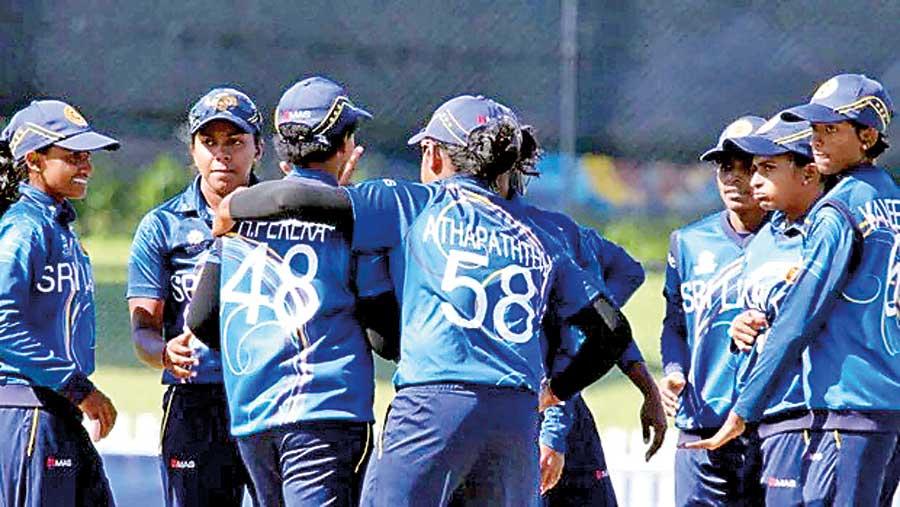Reply To:
Name - Reply Comment

Several questions arise as to how the men's cricket team would look in a backdrop where the women's team is doing extremely well

The Indian cricket team, led by Ajit Wadekar, returned home after a disastrous tour of England in 1974. This tour included the infamous “Summer of 42” second Test match at Lord’s, where India was bowled out for just 42 runs on 24th June in their second innings. India lost both the test and ODI series leading to a humiliating tour. This tragic performance was extremely disappointing for the fans back home. Indian cricketers, captained by Ajit Wadekar included some of the era’s best batting stars, the little master Sunil Gavaskar, Gundappa Vishwanath, Farokh Engineer, and the world renowned spin quartet of Bhagwat Chandrasekhar, Bishan Singh Bedi, Erapalli Prasanna, and Srinivas Venkataraghavan. England dominated the series, winning all five of the major encounters.
The then cricket illiterate Indian fans; passionate and emotional could not digest their team’s poor performance. As a result, many fans gathered at the Delhi Airport with rotten eggs and tomatoes [to welcome the team] express their anger and disappointment.
These ungrateful supporters, unable to control their emotions, shouted degrading remarks and made disrespectful comments about Skipper Wadekar, who had previously led India to historic series victories in the West Indies and England in 1971. This incident marked a significant and turbulent moment in Indian cricket history, underscoring both the passion of the fans and the immense pressures faced by the players and their captain. The contemptuous Label, “Summer of 42”-was borrowed from Oscar winning film ‘Summer of ‘42’, and referred to the number of runs scored by India in its second innings in the Second Test at Lord’s. [The film won an Oscar in 1972.]
Forty-nine years later, in the Cricket World Cup 2023, England, the defending champions, ended the first round with just two points. The Jos Buttler-led side occupied the bottom of the table after losing their last match against India. This situation highlights cricket’s glorious uncertainties, which most of us either do not understand or choose to ignore. Our boys secured thirteen successive wins in 2023, the second-highest in the history of ODIs. In 2012, during an ODI against South Africa played away, our strong team that included Tharanga, Dilshan, Sangakkara, Chandimal, Mahela, and Mathews - got dismissed for a mere 43 runs.
In sports, a “win is a must” attitude by fans reflects a limited mindset where victory by any means is seen as the ultimate goal. However, it’s important to balance this attitude by fans with sportsmanship and the understanding that losing is also a part of sports. Losses can provide valuable lessons, helping teams to identify weaknesses and areas for improvement. Excessive pressure to win can lead to stress, burnout, and negative mental health effects. It’s important to manage expectations and maintain a healthy balance.
Negative behavior by fans can lead to booing the teams, disrespecting referees and officials, or even hostility towards one’s own team and players when they lose or make mistakes. When the players face immense pressure to perform, it can add undue stress, potentially affecting their performance and mental well-being. Spectators/fans with this mentality may overlook the hard work, dedication, and progress made by teams, focusing solely on the outcome rather than the journey and effort involved.
A “win is a must” attitude can sometimes mask true support. Spectators/fans might appear supportive only when their team is winning, but their loyalty may wane during tough times, revealing a lack of genuine backing for the team and its members. When spectators are only enthusiastic about winning, their engagement can seem insincere. True fans support their teams through victories and defeats, appreciating the sport for more than just the final score. While winning is a crucial aspect of competitive sports, a balanced perspective among fans is essential.
Enjoy the skills, strategies, and effort displayed by all participants, regardless of the outcome. Encourage and support teams, especially during difficult times. Positive reinforcement can boost morale and performance. Understand that losses are part of the game. They provide opportunities for learning and growth, both for players and fans. By fostering a more balanced and respectful attitude towards the sport, spectators/fans can contribute to a more positive and enjoyable environment for everyone involved.
“Cricket is a glorious game of uncertainty and no one should make it predictable,” observed a bench of Chief Justice Dipak Misra hearing an appeal by cricketer Sreesanth challenging a Kerala High Court decision upholding the life ban on him imposed by the Board of Control for Cricket in India (BCCI), in the sensational IPL spot-fixing case of 2013.
One last examples involving the same two teams; England and India in a T-20. It happened seven years ago on 1st Feb 2017. England was quite contented in the chase when spinner Chahal was brought into attack. He surprised the cricketing world along with Jasprit Bumrah’s three wickets. England was on 119 for 2 after 13.2 overs, chasing India’s 207. The scorer recorded the last 19 balls of the innings as: W,W,0,0,0,W,1,1,1,1,W,0,4,W,0,W,W,0,W.—8 runs-8 wkts in 3.1 overs
It’s important to note that the majority of fans who understand the intricacies of the game tend to handle losses more gracefully. They often encourage young players to put the losses behind and focus on upcoming challenges. It’s essential to acknowledge that good and bad days are part of the game. What matters most is maintaining a positive mindset and not dwelling on the past.
Politicians should be excluded not only from sports administration but also from commenting on sports. Their involvement often leads to conflicts of interest and undermines the integrity of sports management. Many politicians in both factions of Parliament have obligations to affluent sports body administrators, which can influence their decisions and statements, creating a biased environment that does not prioritize the best interests of the sport or its players.
Several questions arise. With women’s team doing extremely well, [there’s little money in circulation] how will the men look to the future? Handle the inconsistencies that affected their campaign? What changes might be made to strengthen the team for upcoming tournaments? They will require strategic planning, and focused effort to reclaim their former glory. Players should make statements at media briefings and in voice cuts independently, rather than serving as mouthpieces for the board authorities. This would ensure that their genuine experiences are heard, fostering transparency and authenticity. The ICC Anti-Corruption Unit in a message says, “Corruptors will operate across all formats and levels of the game, including Women’s cricket.”
Captivating cricket fanatics with every turn of the ball, Wanindu Hasaranga’s skill shone bright. However, his brilliance was eclipsed by a crucial question: did the listeners read his “carom ball” in his ‘short & sweet’, reply, “We take full responsibility”? If he had spoken on his own, fans would have been inspired, but many had reservations.